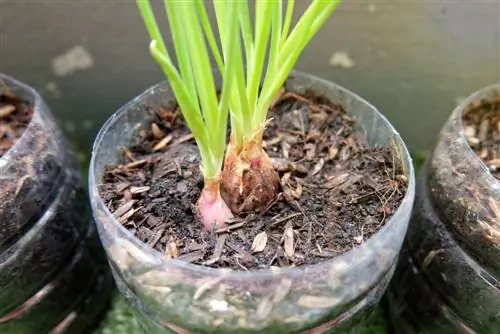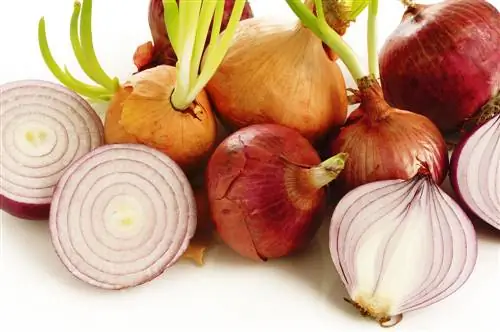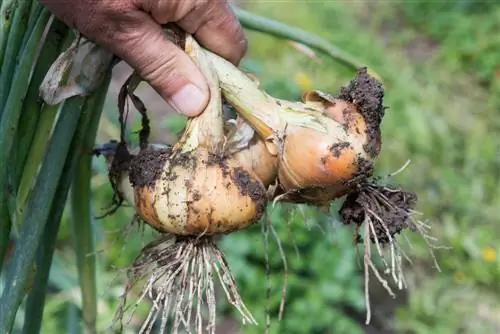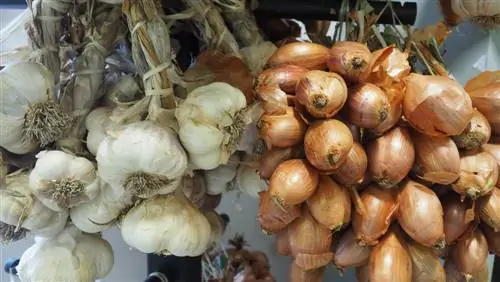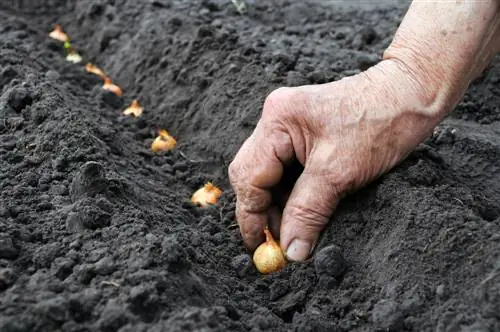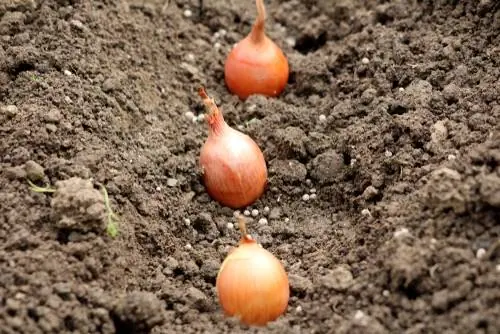- Author admin leonars@hobbygardeners.com.
- Public 2024-01-10 23:11.
- Last modified 2025-01-23 11:21.
If you live in the city and only have a balcony instead of a garden, you don't have to miss out on growing your own vegetables. Onions in particular can be cultivated wonderfully in pots or boxes.
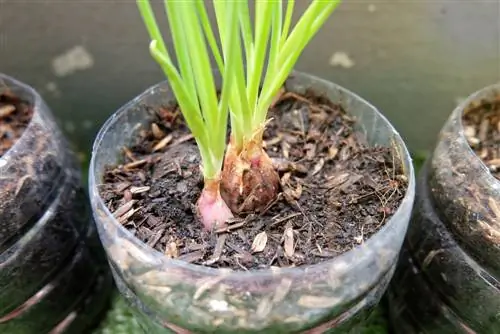
How to plant onions on the balcony?
To plant onions on the balcony, you need a sunny location, sufficiently deep pots or boxes (at least 15 cm), humus-rich potting soil and onion sets. Water and fertilize regularly to be able to harvest fresh onions in spring.
Bulbs in the flower box
Onions are one of the relatively undemanding vegetables that can easily be grown in pots or flower boxes. They are particularly suitable for autumn cultivation on the balcony. Attractive greenery always adorns the balcony during the winter and fresh onions can be harvested in early spring.
The right cultivation
Growing onions on the balcony, especially autumn or winter cultivation, is successful if the conditions for cultivation are right. Important are:
- plenty of sun and warmth (south balcony)
- sufficiently deep flower boxes or pots (minimum depth 15 cm) for good root formation
- humous plant soil for good nutrient supply
Then the onion sets can be planted in the potting soil at a distance of 10 cm in October or November.
Water properly
In addition to removing weeds, watering and fertilizing are the most important measures when growing onions on the balcony. Flower boxes or pots should always be watered well so that the water can penetrate into the depths of the planters. However, it is necessary that they are equipped with a drain. Too much water can run off here, because onions cannot tolerate waterlogging. The easiest thing is to check to what extent the soil has dried out before watering. Only water if the soil is still dry at a depth of 4 cm.
Fertilize correctly
There are various rules to follow when fertilizing. If you use large pots filled with compost soil for cultivation, you only need nitrogen in the form of horn meal, for example. This is quickly decomposed by the soil and releases its active ingredients for the plants. If the potting soil cannot be fertilized with fresh compost, an organic fertilizer with nitrogen, potassium and phosphorus should be used.

